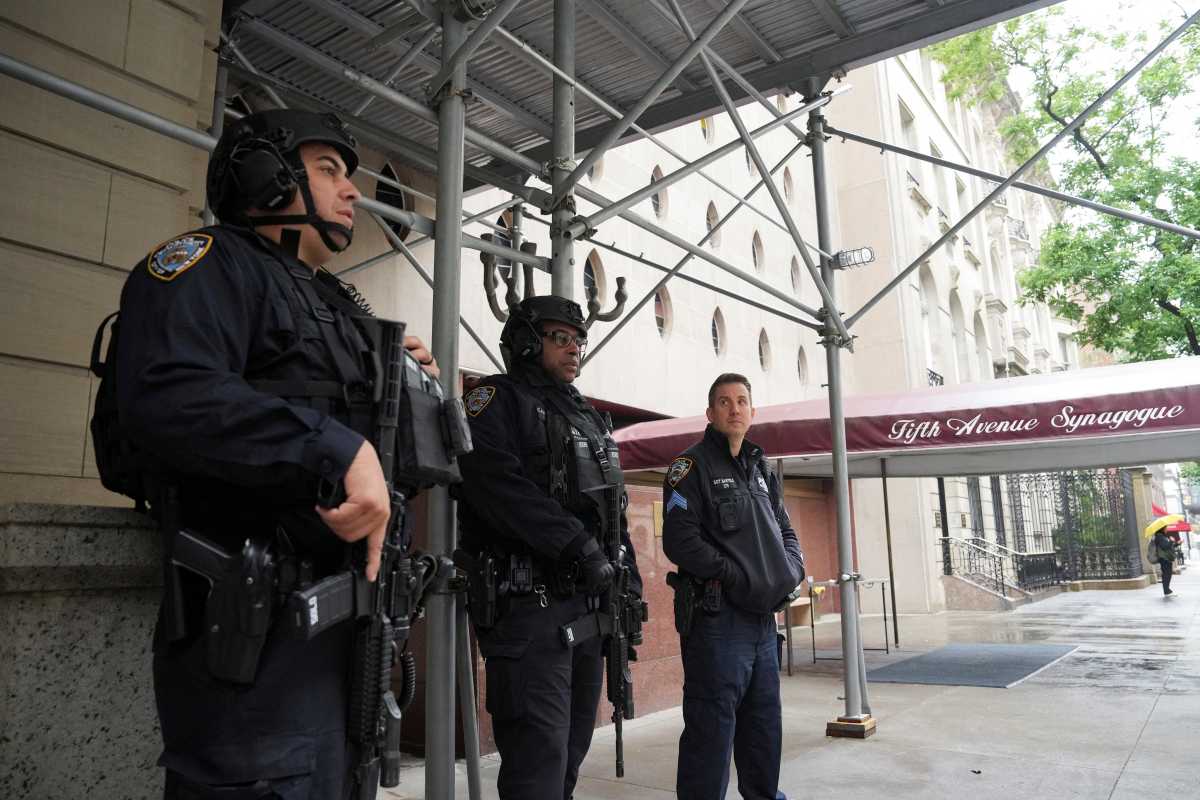By Tom Nicholson
When Isabel Jiminez came to Queens from Mexico 10 years ago, she was seeking the American dream.
These days, the 35-year-old mother of six is happy to get a few bags of rice and beans to feed her kids.
Jiminez, who speaks no English and has children ranging in age from 1 to 17, is just one of a rising number of people in Queens who sometimes don’t know where their next meal will come from.
It’s a problem that charity organizations and government agencies say is on the rise in Queens.
“It’s the worse we’ve seen in the last few decades,” said Joel Berg, executive director of the Coalition Against Hunger, a non-profit advocacy group representing emergency food programs in the city.
Berg said the demand at food pantries in the city increased 26 percent last year and in Queens there was an increase in demand of about 90 percent in 2003 at the borough’s 174 food pantries and soup kitchens.
But while the growing number of statistics signify there is an alarming hunger problem developing in Queens, it’s the lengthening lines outside the doors of the borough’s food pantries that puts a face and an identity on the problem.
At St. Raphael’s Rectory Food Pantry last week, Jiminez was among those standing in line on a bitterly cold morning, waiting for the doors to open. It’s a line of people that continues to get longer and longer each month, the food pantry workers say.
“When we started this food pantry seven years ago we would have a handful of people show up,” said Sister Margarite Critchley, who operates the St. Raphael’s Rectory Food Pantry located at 48-29 Greenpoint Ave. in Sunnyside. “Last December we had 1,121 people come here for food.”
Inside the food pantry, Critchley and a group of about a dozen volunteers prepared the bags of groceries containing beans, rice, chicken and milk for the throng of about 30 people waiting outside.
When the bags of food were ready, Critchley gathered the group of volunteers in a circle and then said a prayer.
“Thank you for the food we have here today,” she said.
Then with an “Amen” she looked at the door where the group of people were waiting.
“Ok, let’s open up,” she said.
The group of people that entered belied the stereotypical image sometimes associated with food pantries and soup kitchens of rough-looking, homeless men. Instead, it was a group made up mostly of women wrapped in head scarves and pulling two-wheeled grocery carts.
“Most of the people that come here are mothers,” Critchley said. “Most don’t speak English and they have children to take care of.”
The women immediately crowded around several tables in the room that were filled with second-hand clothing. They sorted through the clothes, most taking pants or shirts small enough to fit a small child.
Then they took numbers and had a seat in the rows of metal folding chairs to await their turns to get a bag or two of groceries.
Jiminez sat with her number clutched in her hand, her face still red from the cold outside.
“I been coming here for about two years,” Jiminez said with the help of an English-speaking woman who translated for her. “If I didn’t have this (food pantry) I don’t know what I would do.”
Jiminez said she sells Avon products to supplement the food she gets from the pantry and the government assistance she gets to pay her bills.
“It’s rent that’s the biggest culprit for them,” Critchley said. “For some of them, their husbands work and every penny they earn has to go to rent. They might make about $250 a week off-the-books and that’s good for them, but they still have to pay about $1,000 a month for rent. There is no money left for food.”
Clifton Edwards of Woodside said he has been coming to St. Raphael’s Rectory Food Pantry twice a week for about a year. The 52-year old man, looking weary, flashed a smile as he spoke.
“I’ll be honest,” he said. “This helps me a whole lot. I get hungry sometimes and I come here and everyone is just good to me.”
Tom Scheuring, founder of LAMP Ministries which operates food programs throughout the city, including the food pantry at St. Raphael’s Rectory that Critchely started, has been on the front line in the fight against hunger in the city for more than 20 years.
“Yes, hunger has increased here,” Scheuring said. “We bring a canteen truck out into the streets four times a week and the people come out even when it’s very cold. We serve simple sandwiches and donuts, but the people need it. Most of them are in public housing, but they can’t afford food.”
Scheuring said that in his more than two decades of work with what he referred as the “materially poor” he has learned that lack of food often causes a lack a dignity.
“We try to treat them with dignity when they come for food,” Scheuring said. “We’re not just giving them food, we’re giving them something for their inner selves too. If we can help them get their dignity back then they can get the strength to help themselves.”
Critchley said the food comes from donations, government surplus and from Catholic charities. She welcomed donations and knows that, if the trend of hunger in Queens continues to grow, more will be needed.
“If we get more people, if we need more food, we’ll just have to pray to God to provide it,” she said.
Donations of non-perishable food can be arranged by calling 718-729-8957.
Reach Reporter Tom Nicholson by e-mail at news@timesledger.com or by calling 718-229-0300, Ext. 157.

































